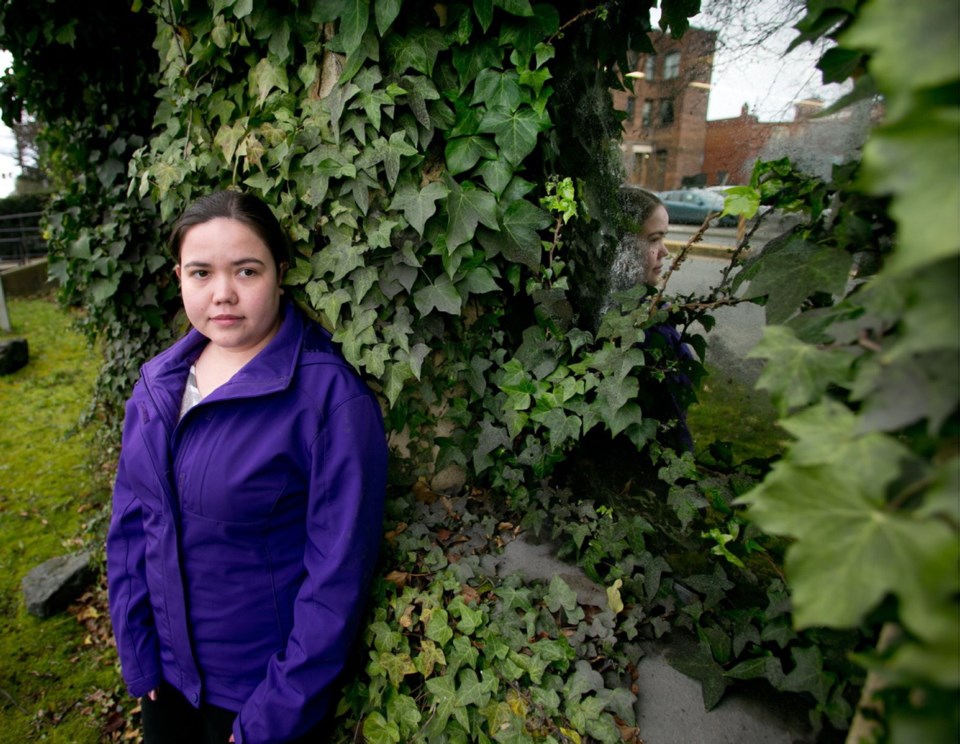Janilee Cadongonan does not look like a threat to Canada.
The 27-year-old doesn’t look like a threat to hurt a fly.
She comes across as shy, sweet, polite and frightened, bewildered that what she insists was a simple clerical error could tear her apart from her family and cost her a life in the country she has called home for 6 1/2 years.
Yet Ottawa remains determined to send her back to the Philippines, wants her gone in a couple of weeks.
“I feel sick about this,” Cadongonan says.
She arrived in Canada in 2006, sponsored by her mother, Anita, who came here after marrying Canadian Edward Stanko in the Philippines in 2002. They all live together in Duncan, where Cadongonan works at the Real Canadian Superstore.
In 2008, Cadongonan returned to the Philippines for a three-week stay during which she wed her boyfriend, Allen Reyes. Upon applying for their marriage licence, they found it came with a waiting period that would have taken her beyond her three-week stay. She says the clerk of the judge who married them said that wasn’t a problem; they could be married right away, without a licence, if they filled out a form as an alternative.
Cadongonan, who had permanent resident status here, returned to Duncan and applied to sponsor Reyes’s immigration to Canada. It was while processing that application that immigration authorities discovered the form the couple had filled out in the Philippines was one for couples who had been living together for at least five years.
After being informed of this, the couple had their marriage annulled and Cadongonan withdrew her sponsorship application. “I did everything I could to make it right.”
Nonetheless, Citizenship and Immigration Canada moved to have her kicked out of the country.
“They said I misrepresented myself.” Not so, she says. “We just signed a form. It wasn’t explained to us that we were supposed to be in a five-year common-law relationship.”
The Immigration and Refugee Board simply didn’t buy that argument, didn’t believe that she didn’t know what she was signing.
“The need to maintain the integrity of the immigration system far outweighs any dislocation caused to the appellant, or her family, by the appellant’s removal from Canada,” ruled the IRB’s appeals division.
This week, Cadongonan, her mother and stepdad drove down to Victoria, where two agents of the Canadian Border Services Agency seized her passport, setting the wheels in motion for her removal.
She is scared. “I don’t have any future in the Philippines.” No job, no family — not even Reyes. They remarried in a church wedding in the Philippines in 2010, but their relationship couldn’t survive time and distance, and they divorced.
Cadongonan, who now has a boyfriend in Victoria, says she feels Canadian. “I’ve adapted to the way of living here.”
She has striven to build a life in Duncan, at one point working three jobs simultaneously: part time at Superstore, waitressing in a Chinese restaurant, then joining her mother at night as a housekeeper at the old Aerie resort. She had planned to certify as a health-care worker through Vancouver’s Drake Medox College, but the exclusion order forced her to abandon those plans.
Stanko, her stepfather, is upset. “If she was a criminal, or really did something wrong, I could see it,” says the retired pulp-mill worker. Both he and his wife have health issues and depend on Cadongonan. The family has spent $20,000 fighting her exclusion, have submitted character references from co-workers, all to no avail.
Having exhausted the appeal process, including a judicial review, her last hope to stay in Canada would appear to be intervention from Immigration Minister Jason Kenney, but the clock is ticking.
If sent packing, she won’t be allowed to apply for readmission to Canada for two years; she thinks her chances of being accepted are slim.
On paper, this might all make sense. In person, it seems flat-out inhumane.
Even if immigration authorities’ suspicions are right, the punishment does seem awfully harsh given the nature of her offence — essentially not waiting long enough to marry a man she was going to marry anyway. Drug dealers and gang bangers roam free, and this is whom Canada chooses to target?
Besides, Cadongonan insists, it really was unintentional.
“It’s not a crime. It’s just a mistake.”



